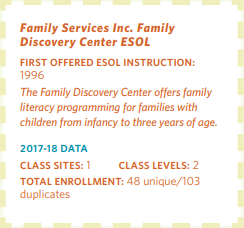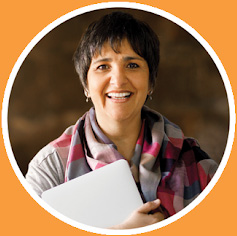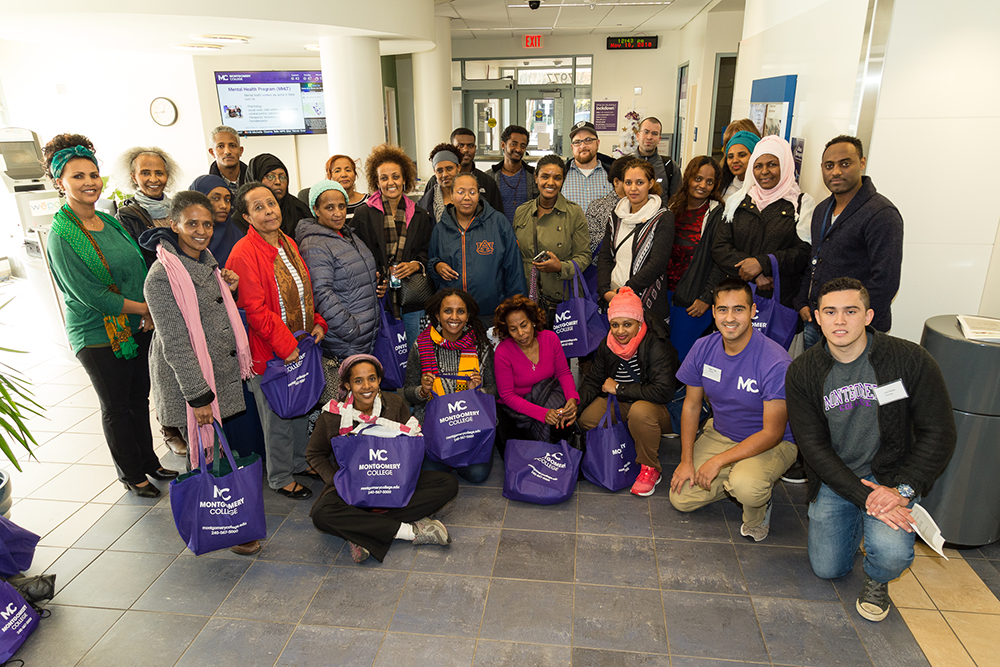-
Program
Administrator
ToolkitA Guide to Implementing and Managing Community-Based Adult ESOL Classes and Programs
-
You are here
Chapter 16: Transition Services
Retaining Students- Chapter 16
Transition Services
♦ NOTES FROM THE FIELD
 Shari Waddy, Program Manager, Family Discovery Center (FDC), Family Services, Inc. talks about her program’s transitional services.
Shari Waddy, Program Manager, Family Discovery Center (FDC), Family Services, Inc. talks about her program’s transitional services. “The Family Discovery Center schedules field trips, guest speakers, and offers experiential educational outings that provide students with information and resources in the community. These resources help them transition from ESOL classes to continuing their education, securing employment, or accessing support services for themselves and their families. Some field trips help transition our participants from the program to further their education. For example, we take field trips to Montgomery College and Ana G. Mendez University to give our participants the opportunity to see different education options in the area.
Guest speakers also aid our participants in transitioning out of the program
On these field trips, participants learn about admission requirements, fees, coursework, and any additional information that is necessary to aid them on their educational track. Guest speakers also aid our participants in transitioning out of the program. Presentations from representatives of Montgomery College or Montgomery County Educational Opportunity Center allow our participants an opportunity to ask specific questions regarding furthering their education. In order to assist our students in finding employment, FDC schedules field trips to Worksource Montgomery or schedules guest speakers from Career Catchers. Business owners have also given presentations, which provided those participants who would like to start their own business valuable insight into how that can be accomplished. Additionally, FDC participants complete an employment readiness program as a part of their ESOL classes.
Participants create a resume and practice their job interview skills
During this program, participants complete a career assessment and practice completing a job application in print and online. Participants also create a resume and practice their job interview skills. Our students have also participated in field trips to job fairs and attended a presentation on how to apply for county government jobs. By providing participants with these valuable opportunities, we are preparing them for the next step and arming them with the tools necessary to transition from our program to a career or college. Finally, the FDC service coordinator connects with students regularly and provides case management to those experiencing personal hardships. The service coordinator also completes a transition plan with participants exiting the program that includes providing information and resources on the following topics: Career, Education, Health/Mental Health, Support Systems, Child Development, Finances, and Relationships.”

